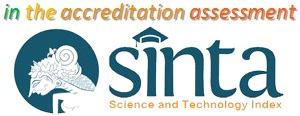Effect of Disease Acceptance on Glycemic Control in Type 2 Diabetes Mellitus Patients
DOI:
https://doi.org/10.37034/medinftech.v3i1.98Keywords:
Disease Acceptance, Glycemic Control, HbA1c, Psychological Management, Type 2 Diabetes MellitusAbstract
This study aims to analyze the relationship between disease acceptance and glycemic control in patients with type 2 diabetes mellitus (T2DM). A narrative systematic review was conducted using the Preferred Reporting Items for Systematic Reviews method, identifying 929 articles from various scientific databases, including PubMed®, ScienceDirect®, Cochrane Library®, and Google Scholar®. The screening and selection process resulted in 19 relevant articles, consisting of a mix of experimental studies and observational studies, that were analyzed to evaluate the impact of disease acceptance on diabetes management and glycemic control in T2DM patients. The review findings show that higher disease acceptance is significantly associated with improved self-management, better glycemic control (with reduced HbA1c levels), and decreased levels of stress and depressive symptoms. Several acceptance-based psychological interventions, such as Acceptance and Commitment Therapy (ACT) and group education programs, were found effective in enhancing disease acceptance. These interventions also help patients achieve optimal glycemic control. These findings emphasize the importance of applying psychological approaches in the management of T2DM to support more comprehensive and sustainable disease care, ultimately improving the quality of life for T2DM patients
Downloads
References
D. G. Gardner and D. Shoback, Greenspan’s Basic & Clinical Endocrinology, 10th ed. United States: McGraw-Hill Education, 2018.
Perkeni, Pedoman pengelolaan dan pencegahan diabetes melitus tipe 2 dewasa di Indonesia. Jakarta: PB Perkumpulan Endokrinologi Indonesia, 2021.
IDF, IDF Diabetes Atlas 10th Edition, 10th ed. Brussels: International Diabetes Federation, 2021.
SKI, “Survei Kesehatan Indonesia (SKI),” Badan Kebijakan Pembangunan Kesehatan Kemenkes RI, 2023.
ADA, “6. Glycemic Goals and Hypoglycemia: Standards of Care in Diabetes—2024,” Diabetes Care, vol. 47, no. 1, pp. S111–S125, Jan. 2024, doi: 10.2337/dc24-S006.
ADA, “2. Diagnosis and Classification of Diabetes: Standards of Care in Diabetes—2024,” Diabetes Care, vol. 47, no. 1, pp. S20–S42, Jan. 2024, doi: 10.2337/dc24-S002.
J. A. Gregg, G. M. Callaghan, S. C. Hayes, and J. L. Glenn-Lawson, “Improving diabetes self-management through acceptance, mindfulness, and values: A randomized controlled trial.,” Journal of Consulting and Clinical Psychology, vol. 75, no. 2, pp. 336–343, 2007, doi: 10.1037/0022-006X.75.2.336.
M. S. Hagger and S. Orbell, “The common sense model of illness self-regulation: a conceptual review and proposed extended model,” Health Psychology Review, vol. 16, no. 3, pp. 347–377, Jul. 2022, doi: 10.1080/17437199.2021.1878050.
S. Kalra, B. Jena, and R. Yeravdekar, “Emotional and psychological needs of people with diabetes,” Indian J Endocr Metab, vol. 22, no. 5, pp. 696–704, 2018, doi: 10.4103/ijem.IJEM_579_17.
P. Trief, C. Himes, R. Orendorff, and R. Weinstock, “The marital relationship and psychosocial adaptation and glycemic control of individuals with diabetes,” Diabetes Care, vol. 24, no. 8, pp. 1384–9, 2001, doi: 10.2337/diacare.24.8.1384.
M. K. Swartz, “The PRISMA Statement: A Guideline for Systematic Reviews and Meta-Analyses,” Journal of Pediatric Health Care, vol. 25, no. 1, pp. 1–2, Jan. 2011, doi: 10.1016/j.pedhc.2010.09.006.
W. W. S. Tam, K. K. H. Lo, and P. Khalechelvam, “Endorsement of PRISMA statement and quality of systematic reviews and meta-analyses published in nursing journals: a cross-sectional study,” BMJ Open, vol. 7, no. 2, p. e013905, Feb. 2017, doi: 10.1136/bmjopen-2016-013905.
M. Fitriani and S. K. Muflihatin, “Hubungan Penerimaan Diri dengan Manajemen Diri pada Penderita Diabetes Melitus Tipe II di Wilayah Kerja Puskesmas Palaran Kota Samarinda,” Borneo Studies and Research, vol. 2, no. 1, pp. 144–150, 2020.
D. C. Bertolin, A. E. Pace, C. B. Cesarino, R. D. C. H. M. Ribeiro, and R. M. Ribeiro, “Psychological adaptation to and acceptance of type 2 diabetes mellitus,” Acta paul. enferm., vol. 28, no. 5, pp. 440–446, Aug. 2015, doi: 10.1590/1982-0194201500074.
F. Taşkin Yilmaz, A. D. Şahi̇N, and A. K. Türesi̇N, “Relationship with glycemic control and acceptance of illness in type 2 diabetic individuals,” Cukurova Medical Journal, vol. 44, no. 4, pp. 1284–1291, Dec. 2019, doi: 10.17826/cumj.528315.
A. Schmitt, A. Reimer, B. Kulzer, T. Haak, A. Gahr, and N. Hermanns, “Assessment of diabetes acceptance can help identify patients with ineffective diabetes self‐care and poor diabetes control,” Diabet. Med., vol. 31, no. 11, pp. 1446–1451, Nov. 2014, doi: 10.1111/dme.12553.
B. Sandén-Eriksson, “Coping with type-2 diabetes: the role of sense of coherence compared with active management.,” J Adv Nurs, vol. 31, no. 6, pp. 1393–1397, Jun. 2000, doi: 10.1046/j.1365-2648.2000.01410.x.
A. Schmitt et al., “Measurement of psychological adjustment to diabetes with the diabetes acceptance scale,” Journal of Diabetes and its Complications, vol. 32, no. 4, pp. 384–392, Apr. 2018, doi: 10.1016/j.jdiacomp.2018.01.005.
M. Jaworski, M. Panczyk, M. Cedro, and A. Kucharska, “Adherence to dietary recommendations in diabetes mellitus: disease acceptance as a potential mediator.,” Patient Prefer Adherence, vol. 12, pp. 163–174, 2018, doi: 10.2147/PPA.S147233.
R. Misra and J. Lager, “Ethnic and gender differences in psychosocial factors, glycemic control, and quality of life among adult type 2 diabetic patients.,” J Diabetes Complications, vol. 23, no. 1, pp. 54–64, Feb. 2009, doi: 10.1016/j.jdiacomp.2007.11.003.
E. Hajati, B. Gharraee, F. Fathali Lavasani, H. Farahani, and A. Rajab, “The Effectiveness of Acceptance-based Emotion Regulation Group Therapy on Diabetes Control Scale in Patients with Type 2 Diabetes: A Simple Randomized Controlled Study,” Iran J Psychiatry Behav Sci, vol. 15, no. 3, Sep. 2021, doi: 10.5812/ijpbs.114224.
Z. Shayeghian, H. Hassanabadi, M. E. Aguilar-Vafaie, P. Amiri, and M. A. Besharat, “A Randomized Controlled Trial of Acceptance and Commitment Therapy for Type 2 Diabetes Management: The Moderating Role of Coping Styles,” PLoS ONE, vol. 11, no. 12, p. e0166599, Dec. 2016, doi: 10.1371/journal.pone.0166599.
N. Hermanns et al., “The Effect of a Diabetes-Specific Cognitive Behavioral Treatment Program (DIAMOS) for Patients with Diabetes and Subclinical Depression: Results of a Randomized Controlled Trial,” Diabetes Care, vol. 38, no. 4, pp. 551–560, Apr. 2015, doi: 10.2337/dc14-1416.
P. E. McDonald, M. A. Nunez, and H. N. Yarandi, “A Church-Based Diabetes Care Survey in St. Thomas, U.S. Virgin Islands.,” J Natl Black Nurses Assoc, vol. 28, no. 1, pp. 9–13, Jul. 2017.
I. Bonikowska, K. Szwamel, and I. Uchmanowicz, “Analysis of the Impact of Disease Acceptance, Demographic, and Clinical Variables on Adherence to Treatment Recommendations in Elderly Type 2 Diabetes Mellitus Patients.,” Int J Environ Res Public Health, vol. 18, no. 16, Aug. 2021, doi: 10.3390/ijerph18168658.
Z. Shayeghian et al., “Self-care activities and glycated haemoglobin in Iranian patients with type 2 diabetes: can coping styles and social support have a buffering role?,” Psychol Health, vol. 30, no. 2, pp. 153–164, 2014, doi: 10.1080/08870446.2014.951651.
E. Fall, B. Roche, M. Izaute, M. Batisse, I. Tauveron, and N. Chakroun, “A brief psychological intervention to improve adherence in type 2 diabetes,” Diabetes & Metabolism, vol. 39, no. 5, pp. 432–438, Oct. 2013, doi: 10.1016/j.diabet.2013.05.003.
S. Saidi, L. J. Milnes, and J. Griffiths, “Are we doing it right? Self-care support for patients with type 2 diabetes in urban areas in Malaysia,” Enfermería Clínica, vol. 29, pp. 691–697, Sep. 2019, doi: 10.1016/j.enfcli.2019.04.106.
E. Fall, N. Chakroun-Baggioni, P. Böhme, S. Maqdasy, M. Izaute, and I. Tauveron, “Common sense model of self-regulation for understanding adherence and quality of life in type 2 diabetes with structural equation modeling,” Patient Education and Counseling, vol. 104, no. 1, pp. 171–178, Jan. 2021, doi: 10.1016/j.pec.2020.06.023.
C. Y. K. Lau, A. P. S. Kong, J. T. F. Lau, V. Chan, and P. K. H. Mo, “Coping skills and glycaemic control: the mediating role of diabetes distress.,” Acta Diabetol, vol. 58, no. 8, pp. 1071–1079, Aug. 2021, doi: 10.1007/s00592-021-01679-w.
R. Misra and J. Lager, “Predictors of quality of life among adults with type 2 diabetes mellitus,” Journal of Diabetes and its Complications, vol. 22, no. 3, pp. 217–223, May 2008, doi: 10.1016/j.jdiacomp.2006.09.002.









